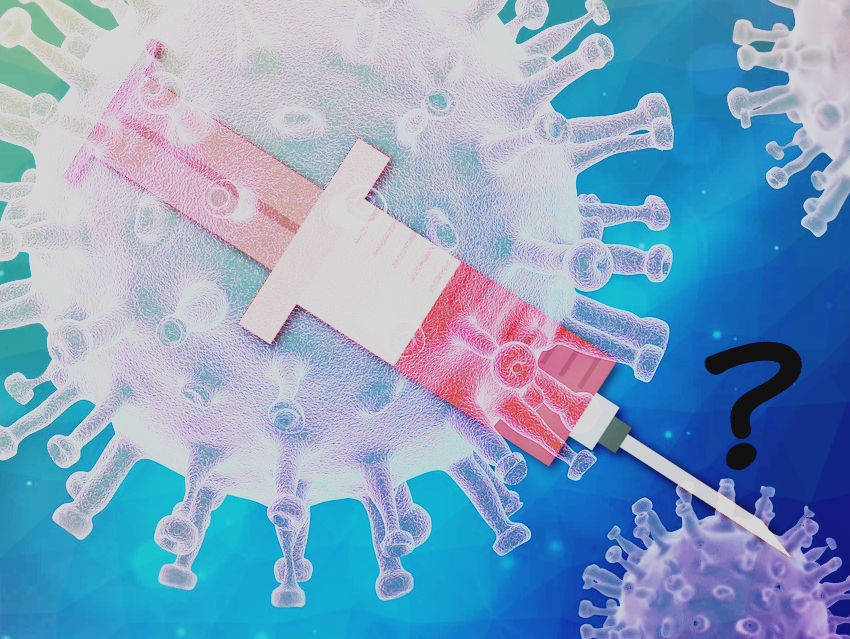mRNA-1273 is an mRNA vaccine candidate against COVID-19, which encodes a pre-fusion stabilized form of the spike (S) protein. It is administered in two doses. mRNA-1273 was jointly developed by Moderna and researchers at the Vaccine Research Center of the National Institute of Allergy and Infectious Diseases (NIAID), Maryland, USA, which is part of the National Institutes of Health (NIH).
Moderna announced that the initial results of their Phase 3 study with mRNA-1273 show a vaccine efficacy of 94.5%. More than 30,000 people participated in their study in the USA. More than 7,000 Americans were over the age of 65. More than 5,000 Americans were under the age of 65 with high-risk chronic diseases that put them at increased risk for serious COVID-19 disorders, including diabetes, severe obesity, and heart disease.
The primary endpoint of the Phase 3 study is based on the analysis of COVID-19 cases confirmed and adjudicated two weeks after the second vaccine dose. This first interim analysis was based on 95 cases. 90 of these were observed in the placebo group and 5 in the mRNA-1273 group. The 95 COVID-19 cases included 15 adults above 65 and 20 participants who identified themselves as coming from different communities, e.g., Hispanic, Black, Asian American. A secondary endpoint analyzed severe cases of COVID-19. 11 cases were defined in the study protocol. They all occurred in the placebo group, according to the press release.
Moderna reports that the vaccine was generally well-tolerated, and no significant safety concerns were found. The company says that the vaccine remains stable for one month in conventional refrigerators and six months in ordinary freezers. The Pfizer BioNTech vaccine, whose first Phase 3 study results were reported six days ago, must be stored at -70 °C. Moderna announced to send data from the full Phase 3 study to a peer-reviewed publication.
The phase 3 study continues. Based on these preliminary safety and efficacy data, Moderna intends to submit an Emergency Use Authorization (EUA) to the US Food and Drug Administration (FDA) in the coming weeks. The company also plans to submit applications for regulatory approval to global regulatory authorities. It expects to have approximately 20 million doses of mRNA-1273 ready for shipment in the US by the end of 2020. By 2021, it plans to produce 500 million to 1 billion doses worldwide.
The study is conducted in collaboration with the NIAID and the Biomedical Advanced Research and Development Authority (BARDA), which is part of the Office of the Assistant Secretary for Preparedness and Response in the US Department of Health and Human Services.
- Moderna, Inc., Cambridge, MA, USA
Also of Interest
- Collection: SARS-CoV-2 Virus
What we know about the new coronavirus and COVID-19 - Clever Picture: Searching for a Vaccine
4 August 2020
Picture describes what happens during vaccination and gives a snapshot of which Covid-19 vaccine candidates are in which clinical phases - Safety and Immunogenicity of SARS-CoV-2 mRNA-1273 Vaccine in Older Adults,
Evan J. Anderson, Nadine G. Rouphael, Alicia T. Widge, Lisa A. Jackson, Paul C. Roberts, Mamodikoe Makhene, James D. Chappell, Mark R. Denison, Laura J. Stevens, Andrea J. Pruijssers, Adrian B. McDermott, Britta Flach, Bob C. Lin, Nicole A. Doria-Rose, Sijy O’Dell, Stephen D. Schmidt, Kizzmekia S. Corbett, Phillip A. Swanson, Marcelino Padilla, Kathy M. Neuzil, Hamilton Bennett, Brett Leav, Mat Makowski, Jim Albert, Kaitlyn Cross, Venkata Viswanadh Edara, Katharine Floyd, Mehul S. Suthar, David R. Martinez, Ralph Baric, Wendy Buchanan, Catherine J. Luke, Varun K. Phadke, Christina A. Rostad, Julie E. Ledgerwood, Barney S. Graham, John H. Beigel,
New England Journal of Medicine 2020.
https://doi.org/10.1056/NEJMoa2028436 - Evaluation of the mRNA-1273 Vaccine against SARS-CoV-2 in Nonhuman Primates,
Kizzmekia S. Corbett, Barbara Flynn, Kathryn E. Foulds, Joseph R. Francica, Seyhan Boyoglu-Barnum, Anne P. Werner, Britta Flach, Sarah O’Connell, Kevin W. Bock, Mahnaz Minai, Bianca M. Nagata, Hanne Andersen, David R. Martinez, Amy T. Noe, Naomi Douek, Mitzi M. Donaldson, Nadesh N. Nji, Gabriela S. Alvarado, Darin K. Edwards, Dillon R. Flebbe, Evan Lamb, Nicole A. Doria-Rose, Bob C. Lin, Mark K. Louder, Sijy O’Dell, Stephen D. Schmidt, Emily Phung, Lauren A. Chang, Christina Yap, John-Paul M. Todd, Laurent Pessaint, Alex Van Ry, Shanai Browne, Jack Greenhouse, Tammy Putman-Taylor, Amanda Strasbaugh, Tracey-Ann Campbell, Anthony Cook, Alan Dodson, Katelyn Steingrebe, Wei Shi, Yi Zhang, Olubukola M. Abiona, Lingshu Wang, Amarendra Pegu, Eun Sung Yang, Kwanyee Leung, Tongqing Zhou, I-Ting Teng, Alicia Widge, Ingelise Gordon, Laura Novik, Rebecca A. Gillespie, Rebecca J. Loomis, Juan I. Moliva, Guillaume Stewart-Jones, Sunny Himansu, Wing-Pui Kong, Martha C. Nason, Kaitlyn M. Morabito, Tracy J. Ruckwardt, Julie E. Ledgerwood, Martin R. Gaudinski, Peter D. Kwong, John R. Mascola, Andrea Carfi, Mark G. Lewis, Ralph S. Baric, Adrian McDermott, Ian N. Moore, Nancy J. Sullivan, Mario Roederer, Robert A. Seder, Barney S. Graham,
New England Journal of Medicine 2020, 383, 1544–1555.
https://doi.org/10.1056/NEJMoa2024671 - An mRNA Vaccine against SARS-CoV-2 — Preliminary Report,
Lisa A. Jackson, Evan J. Anderson, Nadine G. Rouphael, Paul C. Roberts, Mamodikoe Makhene, Rhea N. Coler, Michele P. McCullough, James D. Chappell, Mark R. Denison, Laura J. Stevens, Andrea J. Pruijssers, Adrian McDermott, Britta Flach, Nicole A. Doria-Rose, Kizzmekia S. Corbett, Kaitlyn M. Morabito, Sijy O’Dell, Stephen D. Schmidt, Phillip A. Swanson, Marcelino Padilla, John R. Mascola, Kathleen M. Neuzil, Hamilton Bennett, Wellington Sun, Etza Peters, Mat Makowski, Jim Albert, Kaitlyn Cross, Wendy Buchanan, Rhonda Pikaart-Tautges, Julie E. Ledgerwood, Barney S. Graham, John H. Beigel,
New England Journal of Medicine 2020, 383, 1920–1931.
https://doi.org/10.1056/NEJMoa2022483




